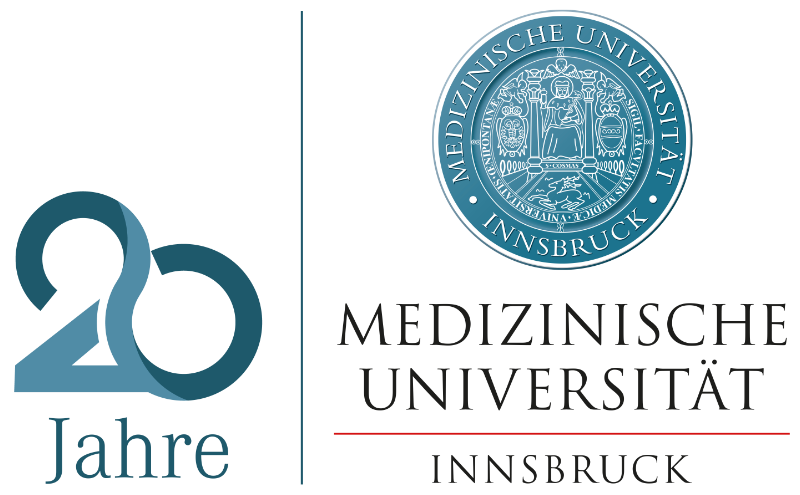Surgical endoscopy
Team of doctors:
Ao. Univ.-Prof. Dr. Christoph Profanter, MME
Dr. Stefan Scheidl, FEBS
Dr.in Elisabeth Laimer
Priv.-Doz.in Dr.in Pamela Kogler
Special consultation hour:
Mon - Fri 08.00 - 15.00
Tel. +43 (0)50 504 22950 (11.00 - 15:00)
In surgical endoscopy we diagnose and treat diseases of the digestive tract, the bile and pancreatic ducts and the airways.
We offer the entire spectrum of modern diagnostic and therapeutic (interventional) endoscopy. This spectrum ranges from the so-called preventive examination (colon and/or gastroscopy) to complex endoscopic interventions on the bile ducts or endoscopic operations of suitable tumours in the gastrointestinal tract. The so-called routine examinations such as gastroscopy or colonoscopy are normally performed under sedation, i.e. with a "sleep injection", while the (therapeutic) interventions are usually performed under general anaesthesia.
In addition, our surgical endoscopy also accommodates state-of-the-art functional diagnostics of the gastrointestinal tract. Among other things, patients with reflux complaints ("heartburn") are examined here in addition to gastroscopy in order to be able to develop a therapy plan tailored to the individual patient. Surgical endoscopy in Innsbruck looks back on decades of tradition, for example ERCP was introduced in the 1970s. Therefore we have the following endoscopic modalities at our disposal:
- Oesophagogastroduodenoscopy (short gastroscopy or gastroscopy) for clarifying the oesophagus, stomach, duodenum and upper small intestine
- Colonoscopy (colonoscopy) for clarification of the entire colon and the end of the small intestine
- Rectoscopy (endoscopy of the rectum) for the lowest part of the large intestine (rectum)
- Enteroscopy (small intestine endoscopy) for examination of large parts of the small intestine
- ERCP (Abbreviation for Endoscopic Retrograde Cholangio-Pancreaticography) primarily for the treatment of diseases of the draining bile ducts and the pancreas
- Cholangioscopy: endoscopic inspection of the bile ducts using a special endoscope as part of the ERCP
- Tracheo-Bronchoscopy
- Endosonographie:
- diagnostic endosonography for further clarification of changes by ultrasound directly from the inside of the digestive tract
- therapeutic endosonography, for example for the treatment of cystic changes in the pancreas
The diagnosis of Helicobacter pylori is carried out by means of breath test, histological and microbiological examinations including determination of resistance.
Manometry (oesophageal manometry, antroduodenal manometry) is performed for the functional diagnosis of motility disorders of the oesophagus, stomach and rectum. In the oesophagus, impedance measurement and 24-h-pH-metry for acid reflux and Bili-tec examination for bilious reflux are also performed.
Overview interventional endoscopy
Objective: Treatment of diseases of the digestive tract, the bile ducts and the pancreas, as well as the airways, using endoscopic, minimally invasive techniques. Exemplary are listed below:
Hemostasis by injection of various substances (e.g. glue such as fibrin) or by application of clips, rubber bands (banding), endoligatures or coagulation by means of argon beamers
Polypectomy for ablation of benign neoplasms, especially for tumor prophylaxis
Endoscopic mucosal resection (EMR) and endoscopic submucosal dissection (ESD): for ablation of suitable tumorous changes
Foreign objects removal from swallowed or introduced foreign objects
PEG and PEJ (percutaneous endoscopic gastrostomy and jejunostomy) for feeding swallowed and stomach-fed patients and for administering medication beyond the stomach or in severe forms of Mb. Parkinson's disease (JET-PEG)
Bougienage and dilatation to widen benign and malignant constrictions
Stent implantation to bridge pathological benign and malignant constrictions
Argon beamer application for the treatment of bleeding and malignant constrictions
Radiofrequency ablation in certain forms of Barrett's esophagus and in radiation proctitis
Endoscopic necrosectomy for severe forms of pancreatitis
Interventional ERCP for the treatment of numerous diseases of the bile duct and pancreas.
Endo-vacuum therapy for the treatment of leaks in the upper and lower digestive tract
Gastroscopy/colonoscopy (gastrointestinal endoscopy)
In addition to the most common questions, such as the endoscopic clarification of gastrointestinal complaints, the entire field of diagnostics and therapy is covered, from preventive examinations to the endoscopic removal of suitable tumors.
ERCP (Endoscopic Retrograde Cholangio-Pancreaticography)
The clarification of biliary and parotid gland diseases is primarily performed at our clinic using a gentle radiological method, magnetic resonance imaging. In addition to the removal of stones in the bile ducts as the most common disease, stents can be applied to treat various narrowing of the bile ducts. By means of cholangioscopy it is possible to perform an endoscopic assessment of the bile ducts.
Endosonography
This is a diagnostic as well as therapeutic form of endoscopy. Here (mostly) an ultrasound examination of various internal organs is performed from the stomach or colon, including the possibility of obtaining tissue samples for histological examination. In addition, this method also enables the minimally invasive treatment of various complex clinical pictures.
Endoscopic special procedures
Enteroscopy is primarily used for the diagnosis of various diseases of the small intestine. By means of bronchoscopy, the trachea and the bronchial system can be reached endoscopically and, if necessary, therapeutic interventions can be performed.
Univ.-Klinik für Visceral-, Transplantations- und Thoraxchirurgie
Universitätsklinik für Visceral-, Transplantations- und Thoraxchirurgie
Anichstraße 35 | 6020 Innsbruck
t +43 512 504-22600 | f +43 512 504-22602
E-Mail: chirurgie@i-med.ac.at
► VTT auf Facebook
► VTT auf LikedIn
► VTT auf Twitter
► VTT auf ResearchGate
► VTT Blog
Universitätsklinik für Visceral-, Transplantations- und Thoraxchirurgie
Anichstraße 35 | 6020 Innsbruck
t +43 512 504-22600 | f +43 512 504-22602
E-Mail: chirurgie@i-med.ac.at
► VTT auf Facebook
► VTT auf LikedIn
► VTT auf Twitter
► VTT auf ResearchGate
► VTT Blog





